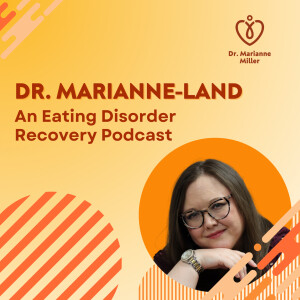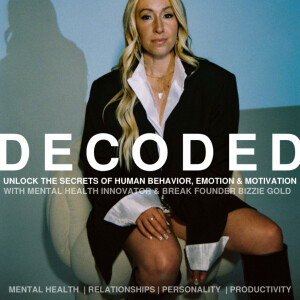

ARFID Explained: What It Feels Like, Why It’s Misunderstood, & What Helps
Avoidant/Restrictive Food Intake Disorder (ARFID) is one of the most misunderstood eating disorders. Although many people assume it is about being a “picky eater,” the truth is far more complex. ARFID can involve overwhelming sensory sensitivities, intense fears of choking or vomiting, and nervous system responses that make eating feel unsafe. For those living with ARFID, every meal can feel like navigating a minefield. Shame, isolation, and years of being dismissed by others often add to the struggle.
WHAT'S IN THIS EPISODEIn this episode, Dr. Marianne Miller explores what ARFID really feels like from the inside, why it is so often overlooked or misdiagnosed, and how to shift from shame to self-compassion. She discusses the intersectional barriers that people with ARFID face, from fat folks being dismissed by providers, to autistic and ADHD individuals being mislabeled as “quirky eaters,” to cultural stigma in BIPOC communities. By unpacking these misconceptions, Dr. Marianne shines a light on why ARFID deserves serious recognition and care.
Midway through the episode, Dr. Marianne shares details about her self-paced ARFID and Selective Eating Course at drmariannemiller.com/arfid. This resource supports parents, adults, and providers alike with a neurodivergent-affirming, sensory-attuned, and trauma-informed framework. It includes practical tools for creating safety around food, reducing shame, and building flexibility without force.
Listeners will also hear about strategies that actually help people with ARFID: validating experiences instead of minimizing them, using sensory-based bridges to expand safe foods, providing trauma-informed care that honors fear as protective, and integrating low-lift routines that work with executive functioning needs. Dr. Marianne explains how true healing is not about eating everything, but about gaining more freedom, more nourishment, and more autonomy.
ARFID is not a choice, and it is not a phase. It is a real eating disorder that deserves respect, compassion, and effective support. Tune in to learn why understanding ARFID matters, and how shifting the conversation can open new pathways for care.
LISTEN TO OTHER EPISODES ON ARFID- ARFID, PDA, and Autonomy: Why Pressure Makes Eating Harder on Apple & Spotify.
- Complexities of Treating ARFID: How a Neurodivergent-Affirming, Sensory-Attuned Approach Works on Apple & Spotify.
- Adult ARFID Explained: Real-Life Strategies for Managing Food & Nutrition with Caroline Holbrook, RD on Apple & Spotify.
- Stuck on Empty: Autistic Inertia, ARFID & the Struggle to Eat on Apple & Spotify.
- Follow me on Instagram @drmariannemiller
- Check out my virtual, self-paced ARFID and Selective Eating course
- Look into my self-paced, virtual, anti-diet, subscription-based curriculum. It is called Dr. Marianne-Land's Binge Eating Recovery Membership.
- Live in California, Texas, or Washington D.C. and interested in eating disorder therapy with me? Sign up for a free, 15-minute phone consultation HERE or via my website, and I'll get you to where you need to be!
- Check out my blog.
- Want more information? Email me at hello@mariannemiller.com
More Episodes
All Episodes>>You may also like
Create Your Podcast In Minutes
- Full-featured podcast site
- Unlimited storage and bandwidth
- Comprehensive podcast stats
- Distribute to Apple Podcasts, Spotify, and more
- Make money with your podcast












